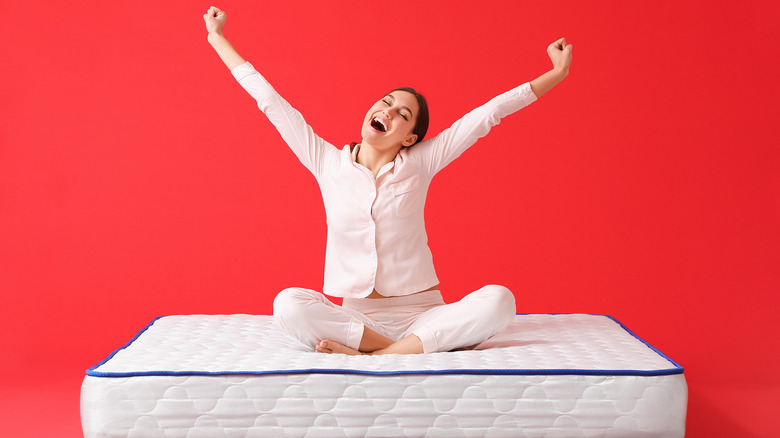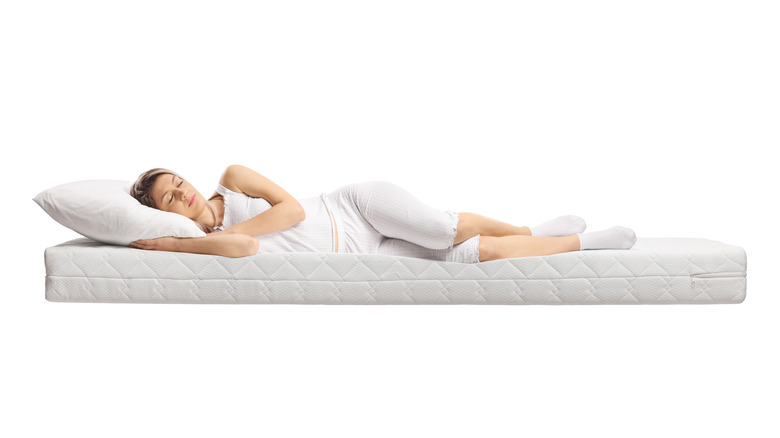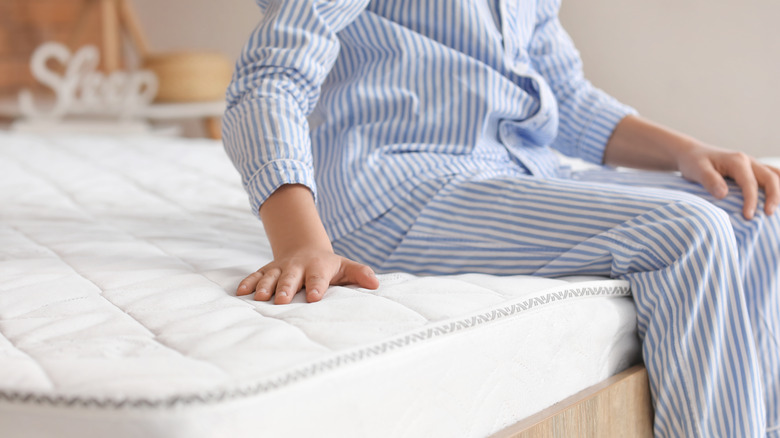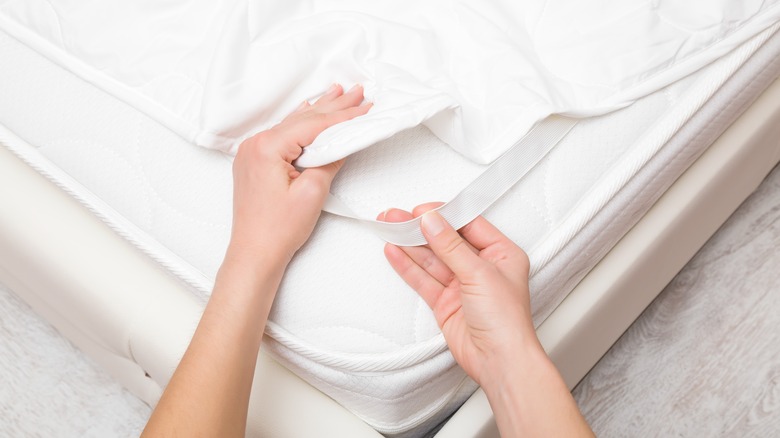Here's How Often You Should Replace Your Mattresses
A high-quality mattress ensures a good night's sleep in preparation for the next day. Therefore, your mattress must provide both the necessary comfort and ample relaxation. Anything less than this, and you're sacrificing your physical and mental well-being as well as your ability to function efficiently. A quality mattress can mean the difference between a healthy lifestyle and one that suffers in several noticeable ways, explains Healthline.
Sleep Foundation suggests a general lifespan of about six to eight years for the average mattress, however, this figure can vary widely depending on the type of mattress that you own and your care and maintenance routine. While time plays a major role in the decision of when best to replace a mattress, there are steps you can take to ensure the longevity of its external and internal components. In addition, there are often other factors that can affect the quality of your sleep, and the decision to hang on to or discard your current mattress.
Construction type determines the life expectancy
The single most important factor that contributes to the lifespan of a mattress is its type of construction. According to CNET, memory foam mattresses typically retain their high-performance rating for 10 to 15 years. Alternatively, an innerspring mattress, which is the most common type, may only last a maximum of 10 years, even when kept in great condition and routinely flipped and rotated. Innerspring mattresses are some of the most affordable on the market, making them a perennial favorite among consumers.
Yet, the reduced cost of some mattress designs can often mean the difference between a short stint in your home and a much longer one. Moreover, pricing plays a role in the expected duration of a mattress, just as with any other type of home furniture, acknowledges Curbed. While the spring coils in a typical innerspring mattress begin to lose their shape and general springiness after five to eight years, a memory foam mattress will retain its stability and elasticity for markedly longer, reports Casper. Ultimately, you can expect your quality of sleep to deteriorate the longer you retain the bed once this sagging starts to take place.
Telltale signs of increased wear and tear
Perhaps the most important factor that signifies when it's time to buy a new mattress is the quality of your sleep. Sleep Foundation reports that a typical night of tossing and turning can be the first indicator that your mattress has passed its due date. Periodically flipping and rotating the mattress will help to prolong its life, and as research by Early Bird suggests, a good rule of thumb is to do this once every six months. If you're finding that you need to change the orientation of the mattress more often than this, then your problem needs a more direct solution.
Mattress Clarity also suggests that flaring allergies while in or around the bed, a mattress that's giving off a noticeable smell, or one that's creaky and noisy is one that you should replace, as these are all telltale signs that the mattress has reached the end of its useful life.
Extend the life of your mattress
Although Sleep Foundation suggests that the average mattress will last around six to eight years, a shorter timeline may result due to lax maintenance routines and minimal cleaning. Architectural Digest offers a simple, nine-step process for cleaning a mattress that is sure to extend the duration of its life. Alongside routine vacuuming, they suggest that exposure to direct sunlight will help remove moisture and odors, alternatively, sprinkling the mattress liberally with baking soda and allowing it to sit for a few hours can have the same effect. These processes act to break down acids and oils while drawing moisture from the outer material. Using a fitted sheet and mattress protector is another useful tip to help keep the surface and interior in good condition for longer, recommends The Bedding Planet. When maintained and cleaned regularly, your mattress will smell better, last longer, and won't be as susceptible to the warping process that naturally occurs over time.



